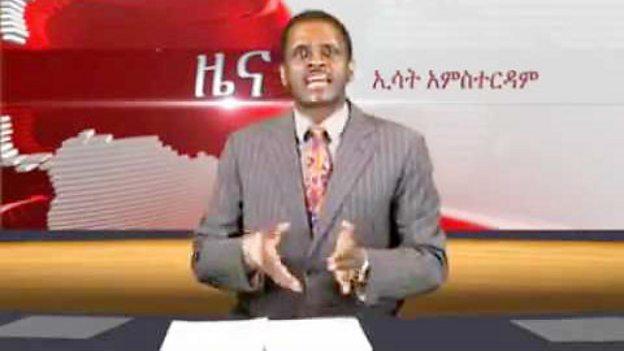Ethiopia curbs media amid protest violence
21 Oct 2016

Ethiopia has introduced strict controls on the media and telecommunications.
The move comes after a state of emergency was announced on 8 October, in the wake of violent anti-government protests by the country's two main ethnic groups.
"Terrorist organisations"
The directives ban printing of any publication carrying “political content”, as well as exchanging messages via mobiles and social media.
The government has also outlawed watching or listening to TV or radio stations belonging to "terrorist organisations". These include Amsterdam-based opposition ESAT TV and the US-based Oromo Media Network TV (OMN).
Both have been key news sources about the protests and the political situation.
Meanwhile, two newspapers have complained that printing firms in Addis Ababa have refused to produce their latest issues.
Ethio-Mhdar newspaper and Yehabesha Weg magazine said the printers had rejected them over “political content”.
American-based Ethiomedia.com website accuses the government of "choosing to plunge the country into the depths of utter darkness" and of "erasing Ethiopia from the world map by criminalising internet and satellite TV communications".
But State Minister of Foreign Affairs Taye Atske-Selassie has told foreign envoys that the government "has given priority to safety and security".
Jamming
The authorities have a habit of jamming foreign broadcasters, especially Western ones.
In recent months, the Voice of America (VOA) and German broadcaster Deutsche Welle (DW) - which broadcast in Ethiopian languages Oromifa, Amharic and Tigrinya - have suffered from deliberate interference.
ESAT's satellite TV broadcasts have also been jammed.
And reports say that, since the curbs were announced, the authorities have started confiscating satellite dishes in the restive southern region of Oromiya.
Threats
State-owned and pro-government outlets dominate Ethiopia's media scene.
The Ethiopian Broadcasting Corporation (EBC) operates the sole domestic TV station and businesses close to the ruling Ethiopian People’s Revolutionary Democratic Front (EPRDF) coalition run key news sources.
Ethiopia is ranked 142 out of 180 countries in the 2016 Reporters Without Borders World Press Freedom Index..
The group says threats, arbitrary trials and convictions are used to silence the media.
No comments:
Post a Comment